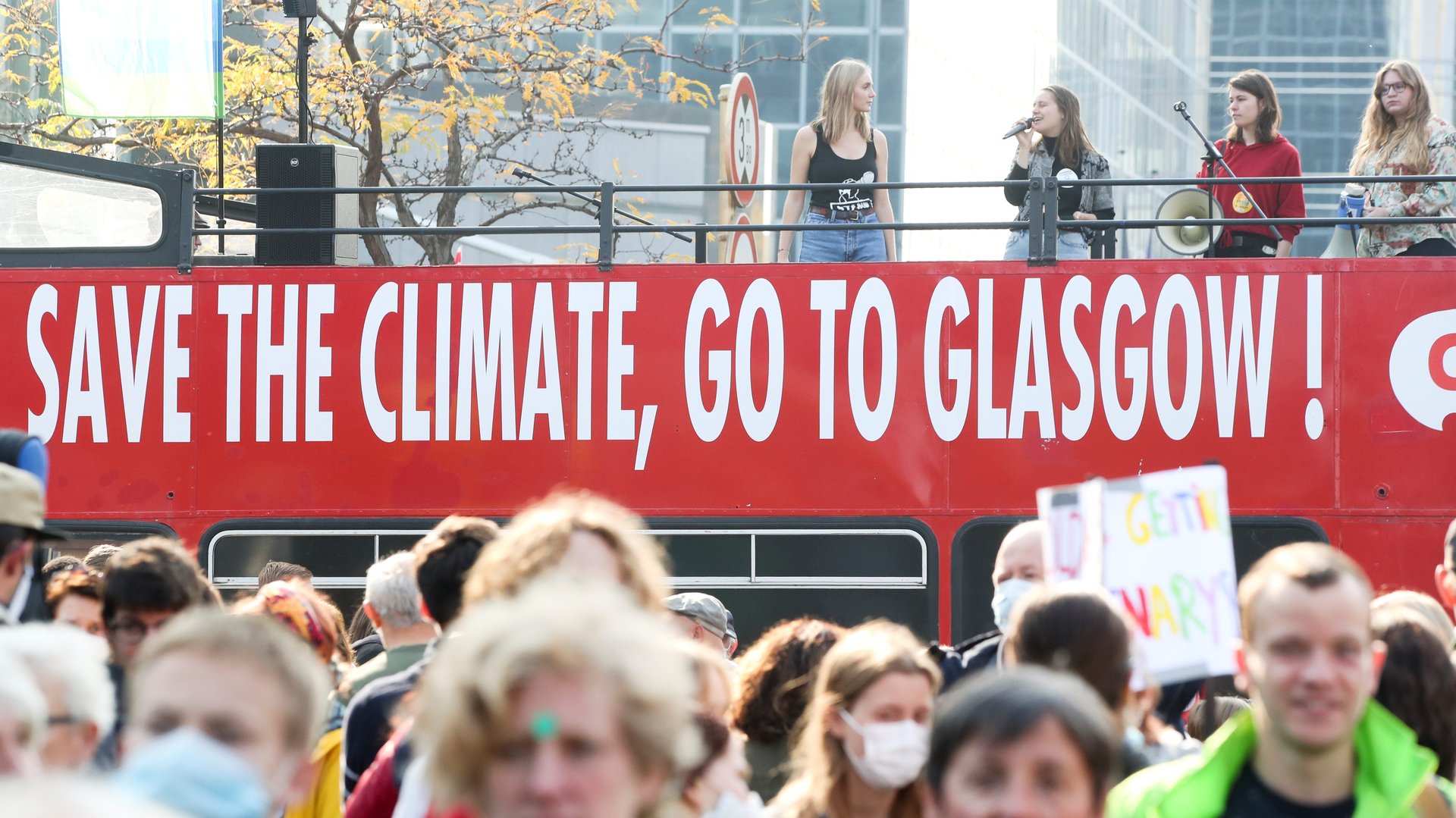The COP26 climate summit has corporate sponsors—and they’re already demanding changes
For corporations, everything is a marketing opportunity—even a UN climate summit trying to solve planetary deterioration caused, in large part, by corporate excess.


For corporations, everything is a marketing opportunity—even a UN climate summit trying to solve planetary deterioration caused, in large part, by corporate excess.
The COP26 climate summit, running in Glasgow from Oct. 31 to Nov. 12, brings together more than 100 national leaders under the UN’s aegis in a bid to find ways to limit global warming. For a conference like this to even have corporate sponsors is strange, and yet COP26 has 11—among them Microsoft, Unilever, Hitachi, and GSK. A lower tier of sponsors includes Jaguar LandRover and IKEA.
Why does COP26 have corporate sponsors?
Multilateral meetings don’t usually require commercial backing; the UN General Assembly meeting in New York every September, for instance, isn’t brought to the world courtesy of Amazon or Walmart. The COP summit, though, has been an exception; previous editions have had sponsors as well. A COP26 spokesperson told the Guardian that the sponsors boost the value of the summit for taxpayers and shrink its financial costs.
The bill for arranging security for delegates, for instance, is expected to run to £250 million, or $343 million, according to Police Scotland. The UK government has not disclosed how much sponsors have paid to attach their brands to the summit, but a study reckoned that companies sponsoring the 2015 Paris climate summit had paid around $17.7 million—barely a tenth of that summit’s costs.
In return for being a COP26 sponsor, companies were promised “unique benefits,” such as UK ministers appearing at their events and space to promote their brands at the “green zone,” the summit’s public-facing exhibition area at the Glasgow Science Centre. This transaction seems to have misled companies to believe that COP26 is a trade fair or a branding exercise rather than an inter-governmental convention. On Sunday (Oct. 17), the Guardian revealed that the sponsors have complained about the “last-minute” way the summit is being organized. A source at one of the sponsors said that ministers were not always available for appearances, and that civil servants are taking “a top-down public sector approach” in planning COP26. Some energy companies, such as Hitachi, are also aggrieved that rival brands are appearing in the summit’s “blue zone,” a UN-managed space for delegates and other accredited people.
Companies are trying to piggyback on COP26
The moral cachet of COP26 is so high—a summit trying to save the world!—that companies are understandably keen to associate themselves with it in any way. Hitachi, for instance, released a “zero carbon” film “powered entirely by cyclists and a solar-powered generator” and narrated by the Oscar-winning director Sam Mendes. Unilever, one of the five biggest producers of polluting plastics according to a 2019 report by a coalition of NGOs, is screening its own film about “action towards a nature positive, net zero world,” as per the COP26 schedule.
Some corporate-backed events at the summit might have even come at the expense of other, more relevant panels, the environmental journalist Gareth Simkins suggested on Twitter. His panel on journalism and climate change was “canned due to lack of venue.” But Reckitt, the British company that sells Dettol, has been given a sponsored slot in the schedule for a hygiene program targeting children—an event with no ostensible connection to climate change.
And although the British government refused to accept sponsorship from fossil fuel companies for COP26, that wasn’t for the companies’ lack of trying. The campaigning group Culture Unstained revealed last year that Equinor, BP, and Shell tried hard to become COP26 partners. “If I was to ask you—ball park—how much money you would like from us, for what, and with what visibility for us, what would you say?” an Equinor representative asked a British government official in a leaked 2019 email (pdf).
Some companies with especially vast carbon footprints and emissions records managed to get on the agenda of a mid-October event in Edinburgh designed carefully to be COP26-adjacent. The event was organized by TED, the conference of “ideas” that, in its roster of celebrities, CEOs, and tech gurus all offering neat, market-driven solutions to global problems, has long been the handmaiden of corporate capitalism. That event’s schedule featured a cement company, an oil giant, and at least one leading venture capitalist. One panel, titled “Decarbonizing fossil fuels,” hosted the CEO of Shell, a company currently lobbying to develop a new oilfield off the UK’s Shetland Islands. His fellow speaker, an activist, accused him of “sitting here giving us this greenwashing” before storming off the stage. It was perhaps the most dramatic signal possible of the kinds of frictions that lie ahead at COP26.